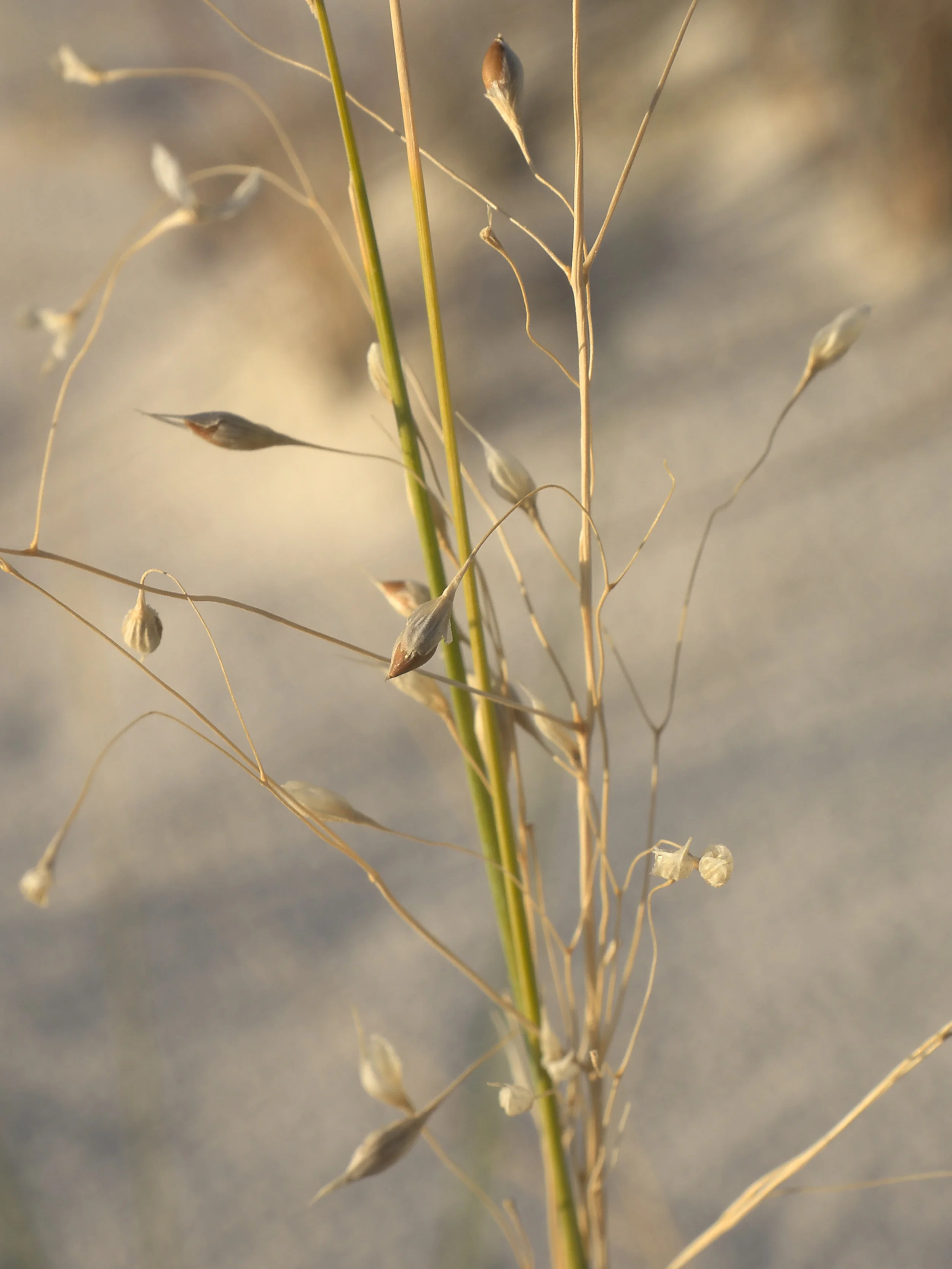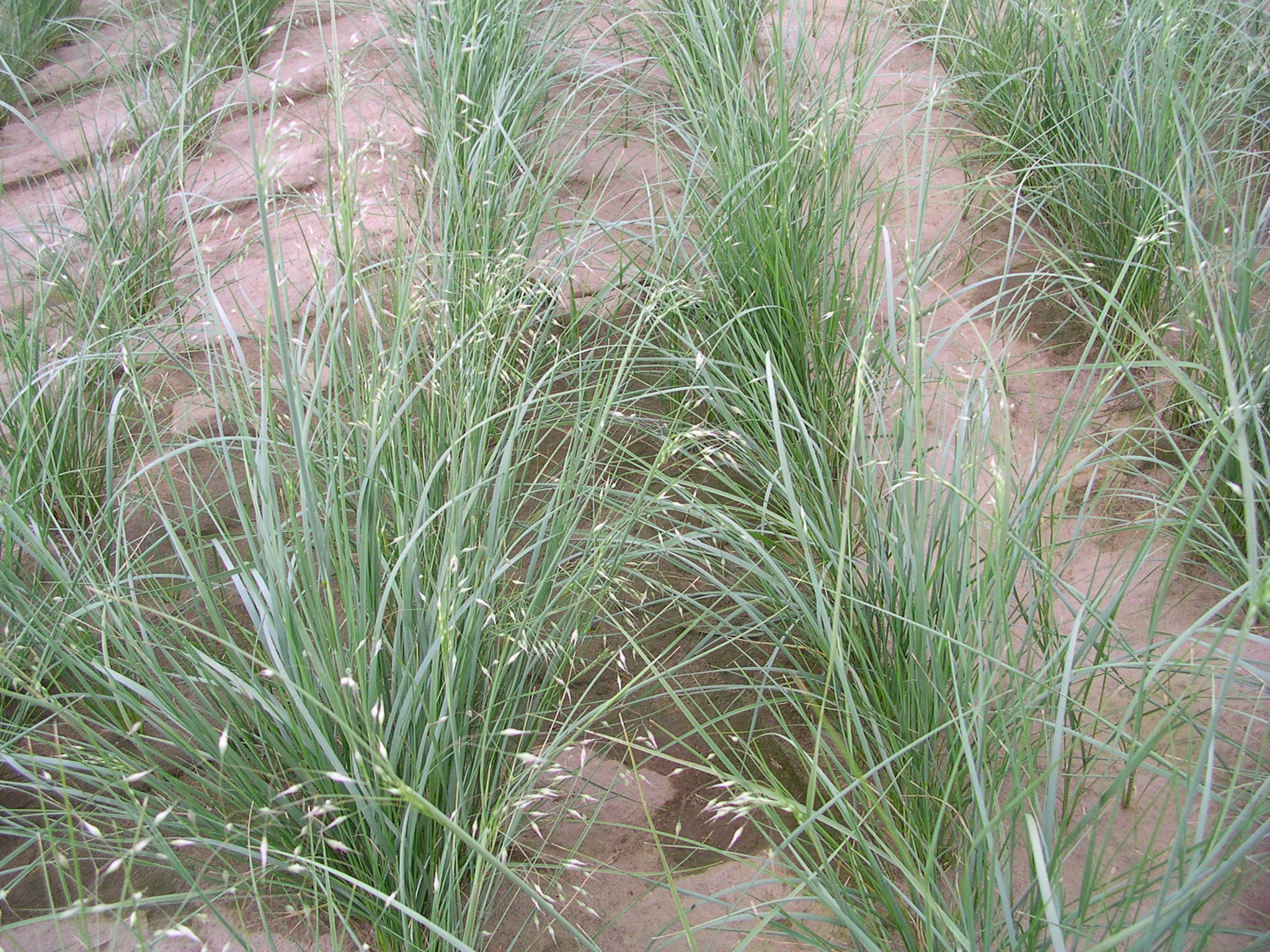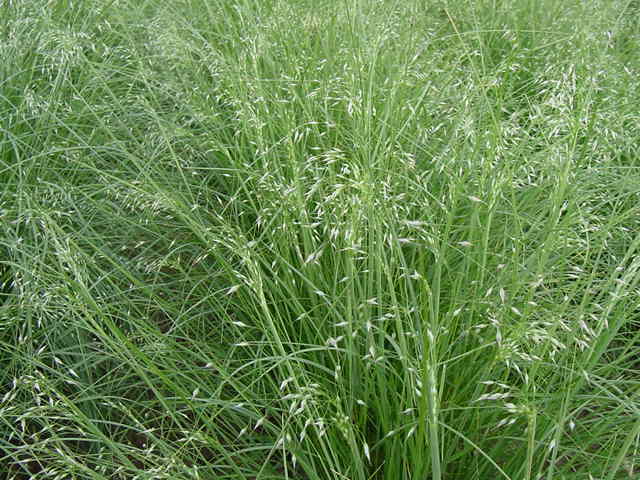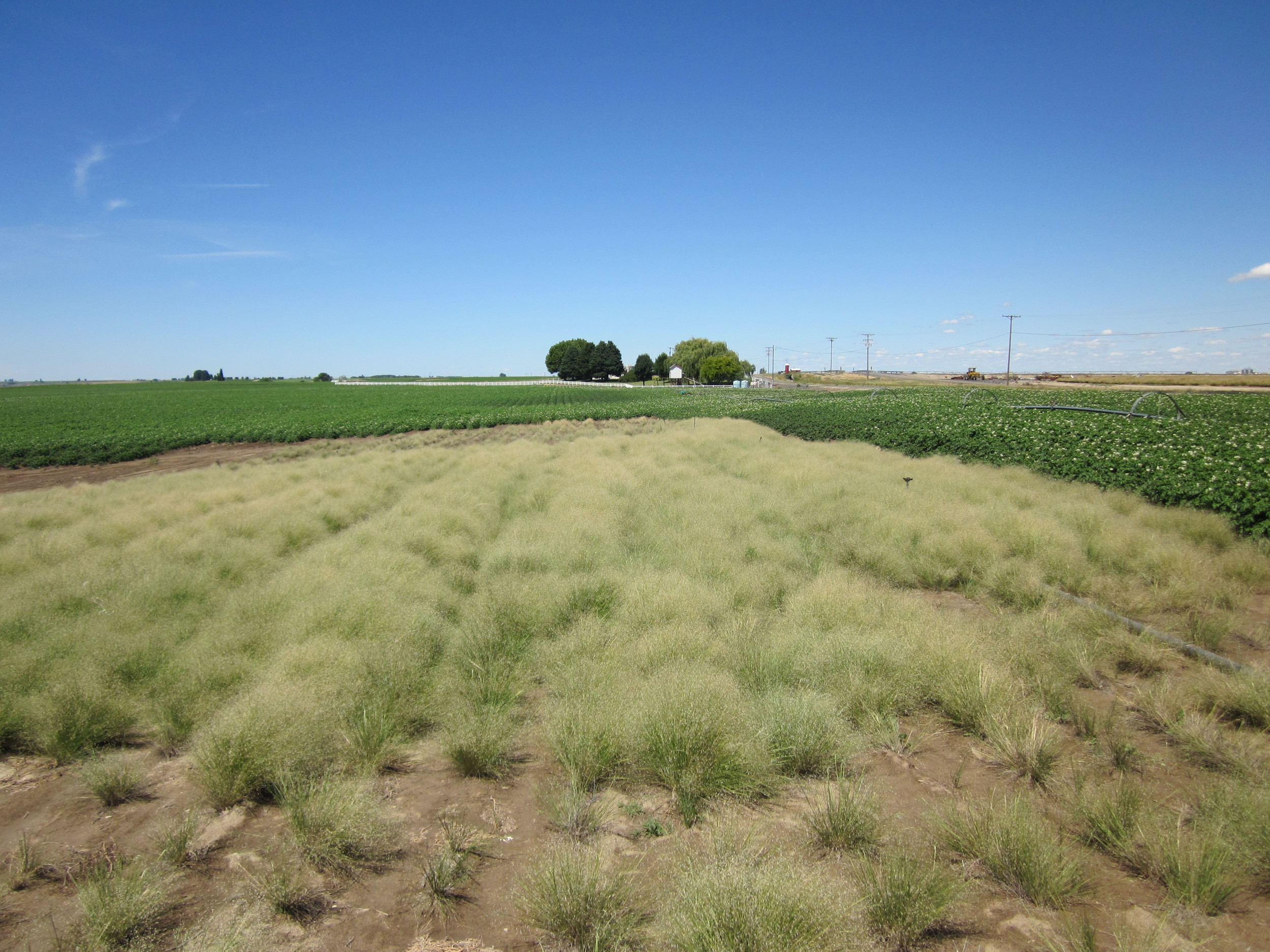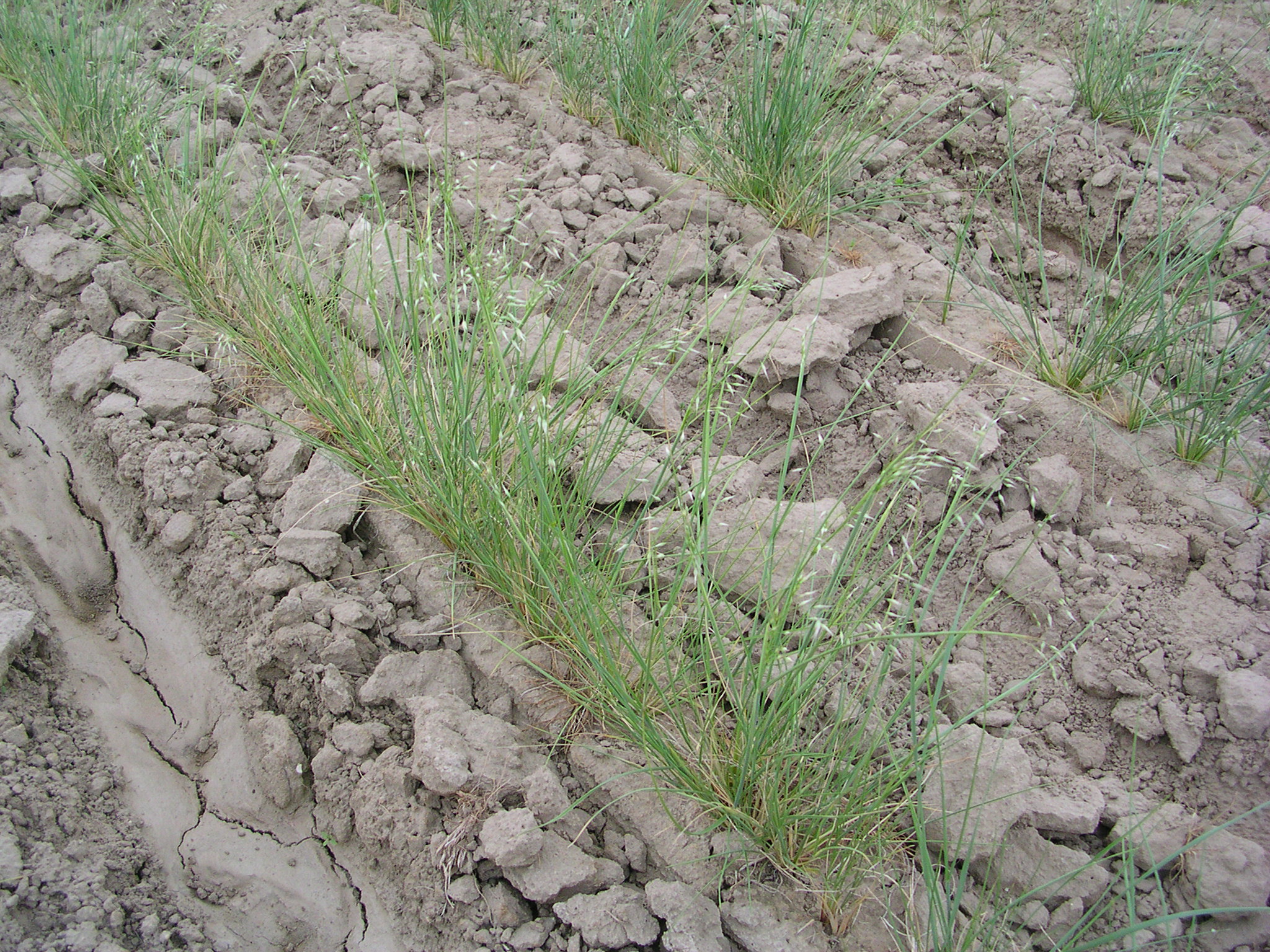Achnatherum hymenoides (Indian ricegrass)
Formerly Oryzopsis hymenoides. Densely tufted, cool season, perennial bunchgrass, adapted to deep, well-drained soils. Tolerant of weakly saline and sodic soils. Very drought tolerant and winter hardy. Valuable for stabilizing sandy soils susceptible to wind erosion. Excellent for native restoration, rangeland improvement and disturbance reclamation. Often slow to germinate but good seedling vigor. Sometimes occurs as a dominant species. Forage is highly palatable and nutritious to livestock and wildlife. Seeds are sought by birds and small mammals. Varieties listed below.
DISTRIBUTION / ADAPTATION
INFORMATION & ATTRIBUTES
Family: Poaceae
Duration: Perennial, short lived
Growth Habit: Graminoid
Native Status: Native
Season: Cool season
Growth Form: Bunchgrass
Mature Height: 12-24 in.
Annual Precipitation: 6-16 in.
Drought Tolerance: High
Shade Tolerance: Intolerant
Elevation:
Fire Resistance: No
Fire Tolerance: High
SOIL ADAPTATION
Coarse Texture: Yes
Medium Texture: Yes
Fine Texture: No
Salinity Tolerance: Low
CaCO3 Tolerance: High
pH Range: 6.6-6.8
SEEDING NOTES
Seeds per Pound: 141,000
Seeding Rate: 6-12 PLS lbs/acre
Season: Fall
Days to Germination:
VARIETIES & LOCAL ACCESSIONS
Nezpar - Consistently good establishment. Survives in areas with as low as 6 in. annual precipitation. Outperforms Paloma in the northern U.S. in yield and stand survival. (Released 1978, origin: Idaho County, ID)
Paloma - Used in the southern half of the species range. Long lived, good regrowth and spring recovery. Some resistance to root rot damage. (Released 1974, origin: Pueblo County, CO)
Rimrock - Cold hardy and better adapted to northern latitudes than Nezpar. Prodigious seed producer. Similar in establishment and vegetation characteristics to Nezpar and Paloma. (Released 1996, origin: Yellowstone County)
White River - High germination rates and seed yield. Intended for wildland restoration, mineland rehabilitation, and mountain rangelands in Colorado, Utah and Wyoming. (Released 2006, origin: Rio Blanco County, CO)

